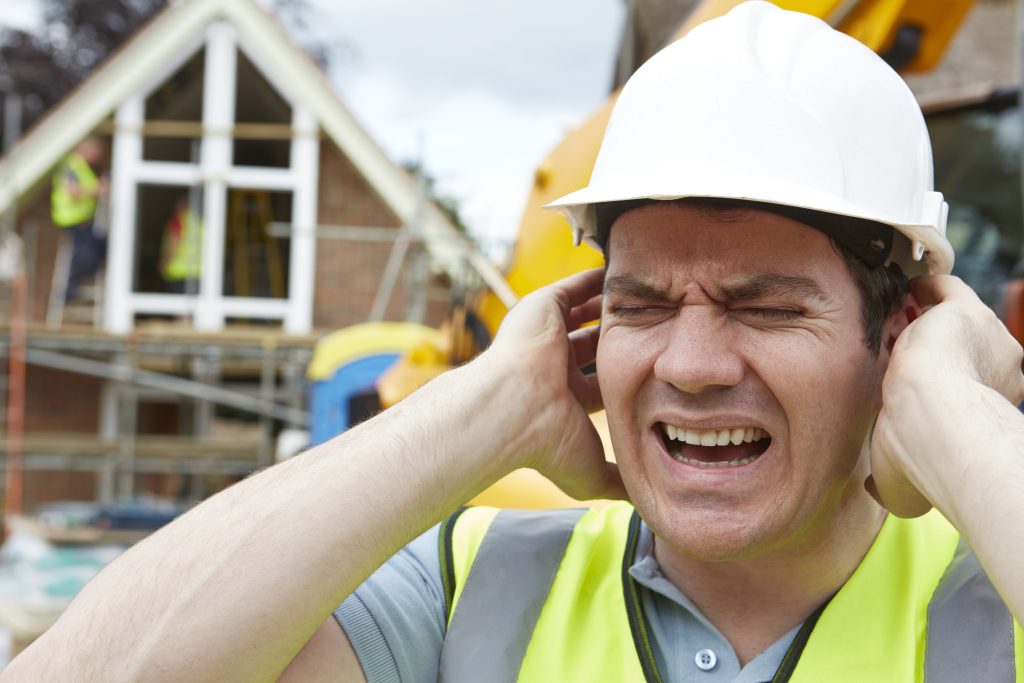 What can you do about hearing loss caused by noise exposure? Many people believe that aging causes hearing loss, but it is noise exposure that increases the risk of hearing loss. It can happen to anyone at any age.
What can you do about hearing loss caused by noise exposure? Many people believe that aging causes hearing loss, but it is noise exposure that increases the risk of hearing loss. It can happen to anyone at any age.
Exposure to extremely loud noises like an explosion or a gunshot can damage your hearing. Prolonged exposure to excessive noise levels like attending concerts, and working in construction, or airfields also contributes to hearing loss. This type of hearing damage can happen instantly or over an extended amount of time.
The function of the ear
The inside of your ears are sensitive hair cells. They reside in the cochlea or the inner ear which processes sound. Hair cells convert sound ways into electrical signals that are sent through neural pathways to the brain for interpretation. If these hair cells become damaged, they start to malfunction in sending messages and your hearing becomes compromised. When this happens, you might experience tinnitus, ringing in the ears, or noise-induced hearing loss.
Hearing damage can occur if sound rises above 85 decibels, which is how sound is measured to determine the loudness of the noise. A person can experience 85 decibels on a busy stress or louder sound that would include construction noise, lawnmowers, or listening to a jet take off.
Noise-induced hearing loss is 100 percent preventable.
You should know that hearing loss as you age has a strong correlation with many adverse side effects including social isolation, depression, balance issues, and dementia. Hearing loss can affect your relationships, work, and social life.
You can actively prevent noise-induced hearing loss by developing good habits with ear protection awareness. Listening to extremely loud music on your phone can damage your hearing. Being aware of how loud you listen to your music prevents hearing loss.
Many people assume that as they age, they will experience hearing loss, however much of this is preventable when they know that noise-induced hearing loss is a major factor in hearing loss associated with aging. Prevention starts with learning how to protect your ears.
Noise Exposure
Exposure to loud noise is never harmless even if it is occasional or brief. You may experience temporary symptoms of tinnitus, muffled hearing, or noise exposure hearing loss. This comes with an increased risk of damaging the auditory nerve and the inner ear permanently. If you experience tinnitus even temporarily, especially after exposure to loud noises like attending a concert, visit your audiologist for a hearing screening.
Never use a personal listening device such as your phone at higher than a 50% volume output. Purchasing sound canceling, volume-limiting headphones or EarPods to help you limit overworking your hearing. These headphones help enhance your listening experience at lower volume levels. You can also download apps on your smartphone that will limit the noise. You are in control of the volume of your television. Instead of turning it up, try a lower volume and add closed captioning.
Noise-Canceling Headphones
Noise-canceling headphones or earplugs should always be used when heading out to activities like clubs, bars, concerts, or performances. Wear headphones or earplugs when working with power tools, lawnmowers, or other yard equipment as they emit loud noise. You can also purchase inexpensive foam, wax, silicone, or pre-molded music earplugs to help reduce the noise. Your audiologist can fit you with custom-molded high-fidelity earplugs.
Try to limit your exposure to loud noises. Remove yourself from noisy situations and carry earplugs with you to use during exposure to loud noises when it can’t be avoided. Give your ears a rest. Constant exposure to noise can cause fatigue. Allow yourself some quiet time to relax and regenerate. Your ears need rest to recover.
Noise damage is permanent
Once you experience noise-induced hearing loss, you cannot get it back as there is no cure for the tiny bones and hairs that suffer the damage. You will need to see an audiologist for a diagnosis and a treatment plan that may include hearing aids, therapy, and other methods to learn to live with hearing loss.
If you don’t understand complex sounds or if the sound is distorted, you might experience noise-inducing hearing loss. You may feel others sound muffled when talking. Difficulty hearing doorbells or high-pitched sounds are also symptoms of hearing loss. Missing out on hearing certain letter sounds like f and z are an indicator of hearing loss. You may find it frustrating to be in a noisy room because you can’t hear conversations or the background noise seems to compete with other sounds.
If you think you are experiencing noise-induced hearing loss, whether mild, moderate, or severe, Test Your Hearing Online today. At El Dorado Hearing, we are specialists who can work with you to improve your hearing and get you back to living a quality life!




Leave a Reply